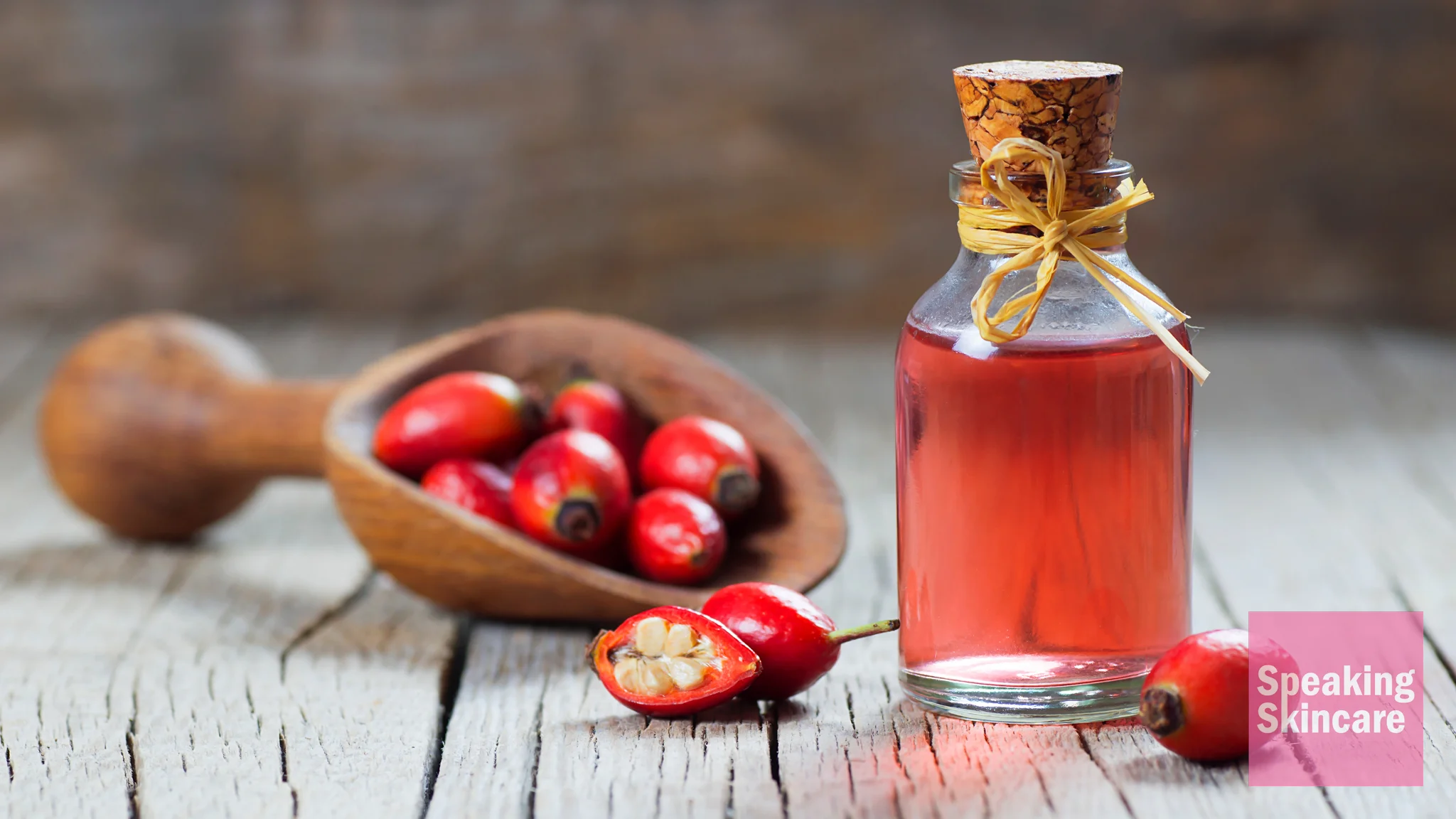Rosehip oil is becoming an incredibly popular product in the skincare world. Millions of people are discovering the wonderful benefits this simple oil can provide, and are including it as one of the main elements in their skincare routines.
But when exactly is the best time to use rosehip oil in your skincare routine? We have the answers.
What is rosehip oil?
First, let’s make sure we understand just what rosehip oil is and why it’s so great. Rosehip oil is naturally derived from rosebush fruit.
It is packed with vitamins and nutrients that can be very beneficial for a number of skin concerns. These include Vitamin A, Vitamin C, and healthy fatty acids such as palmitic acid, linoleic acid, oleic acid, and gamma linoleic acid.
The benefits of rosehip oil
Rosehip oil can provide many benefits thanks to its potent ingredients. Here are some of its main advantages.
Vitamin C
Rosehips are said to contain more Vitamin C than oranges or lemons, which is quite amazing. Vitamin C has a host of antioxidant properties that help protect the body from free radical damage. It also contributes to the production of collagen, which is an essential protein that keeps the skin looking young, healthy, and elastic.
Anti-aging
Another great plus point for rosehip oil is its powerful anti-aging qualities. Since it contains a big serving of Vitamin A, or retinol, as it’s also known, rosehip oil can help minimize the appearance of lines and wrinkles in the skin. Vitamin A can also help reduce hyperpigmentation and treat symptoms of mild acne.
Source of lycopene
Rosehip oil, according to a 2003 study[1], is a rich source of lycopene, which is an antioxidant that can protect the skin from free radical damage. A 2018 review[2] of several studies discovered that products with a lot of lycopene can help protect the skin from damage from the sun’s UV rays.
Hydration
Rosehip oil is a fantastic way to restore essential moisture and hydration back to the skin. When used consistently, the oil helps relieve symptoms of dry skin and encourages water retention, giving the skin a healthier overall feel and look.
When to use rosehip oil in your skincare routine
Now that we know how fabulous rosehip oil is, it’s time to explain the best time to use it in your skincare routine to get those advantages.
In our opinion, the best time to use rosehip oil is either in the morning or in the evening. Whichever you choose will obviously be based on your lifestyle and just personal preference, but both scenarios need to afford you ample time to apply rosehip oil properly.
Oil, because of its texture and consistency, requires a bit of time to be fully absorbed into the skin. This is why rosehip oil should be applied to the skin after it has been cleaned, but before any makeup is used. In the evening, rosehip oil can be applied once all makeup has been removed, but before carrying out that final facial cleanse before bed.
Personally, I prefer using rosehip oil in the morning, as it can keep the skin hydrated, moisturized, and protected from the sun throughout the day, which is super helpful. However, applying rosehip oil before bed can refresh the skin for the next morning, which is also valuable.
Conclusion
Rosehip oil is an incredibly effective product with a host of brilliant benefits. It is best used either in the morning, or in the evening, before makeup application, and after its removal.
With consistent usage, rosehip oil can help moisturize the skin, provide anti-aging qualities, protect against free radical damage, and restore vital skin hydration.
We’d definitely recommend you include rosehip oil in your daily skincare routine.
